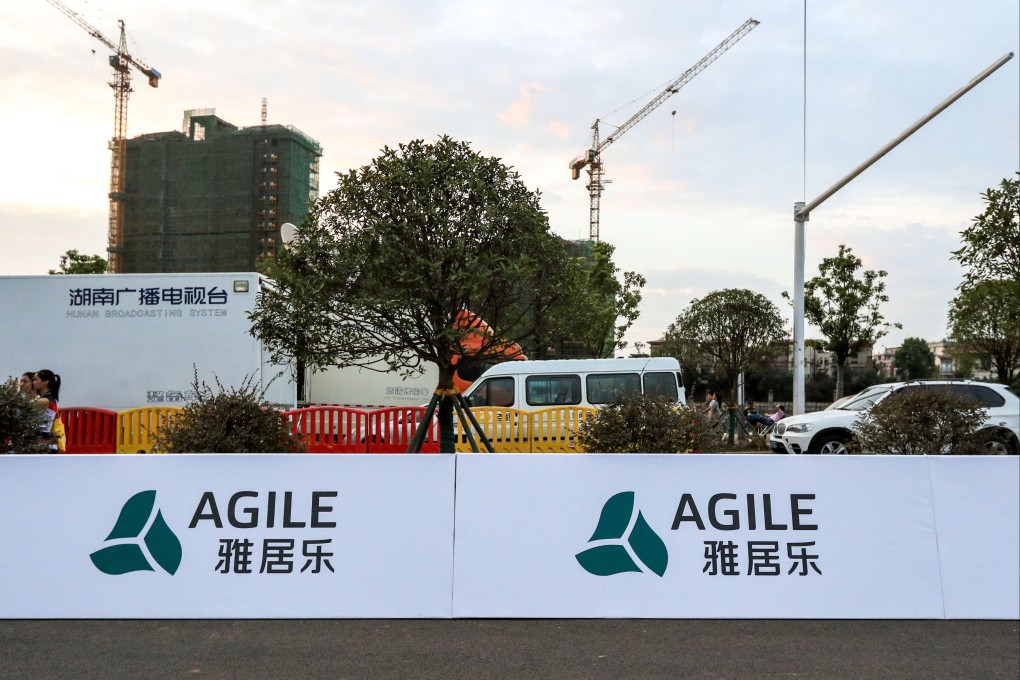Advertisement
Agile Group becomes latest debt-ridden Chinese developer to be rescued by state-owned company
- State-backed companies are bailing out Chinese developers pushed to the edge of ruin by Beijing’s ‘three red lines’ borrowing restrictions
- Agile will sell its stake in a Guangzhou property joint venture for 1.84 billion yuan to a unit of state-owned China Overseas Land & Investment (Coli)
3-MIN READ3-MIN
3

State-backed companies are coming to the rescue of embattled Chinese developers pushed to the edge of financial ruin by Beijing’s “three red lines” borrowing restrictions.
Agile Group, one of the country’s top 20 home sellers, said it will sell its 26.7 per cent stake in a Guangzhou property joint venture for 1.84 billion yuan (US$300 million) to a unit of China Overseas Land & Investment (Coli).
Hong Kong-listed Coli is a property arm of China State Construction Engineering, which is directly owned by the State-owned Assets Supervision and Administration Commission of the State Council.
Advertisement
The Guangzhou-based developer said the deal “would [help] the group to meet its working capital requirements and future business development.”
It comes after Shimao Group announced on Friday it had sold land in Shanghai to a company owned by the Shanghai municipal government.
Advertisement
Advertisement
Select Voice
Select Speed
1.00x
